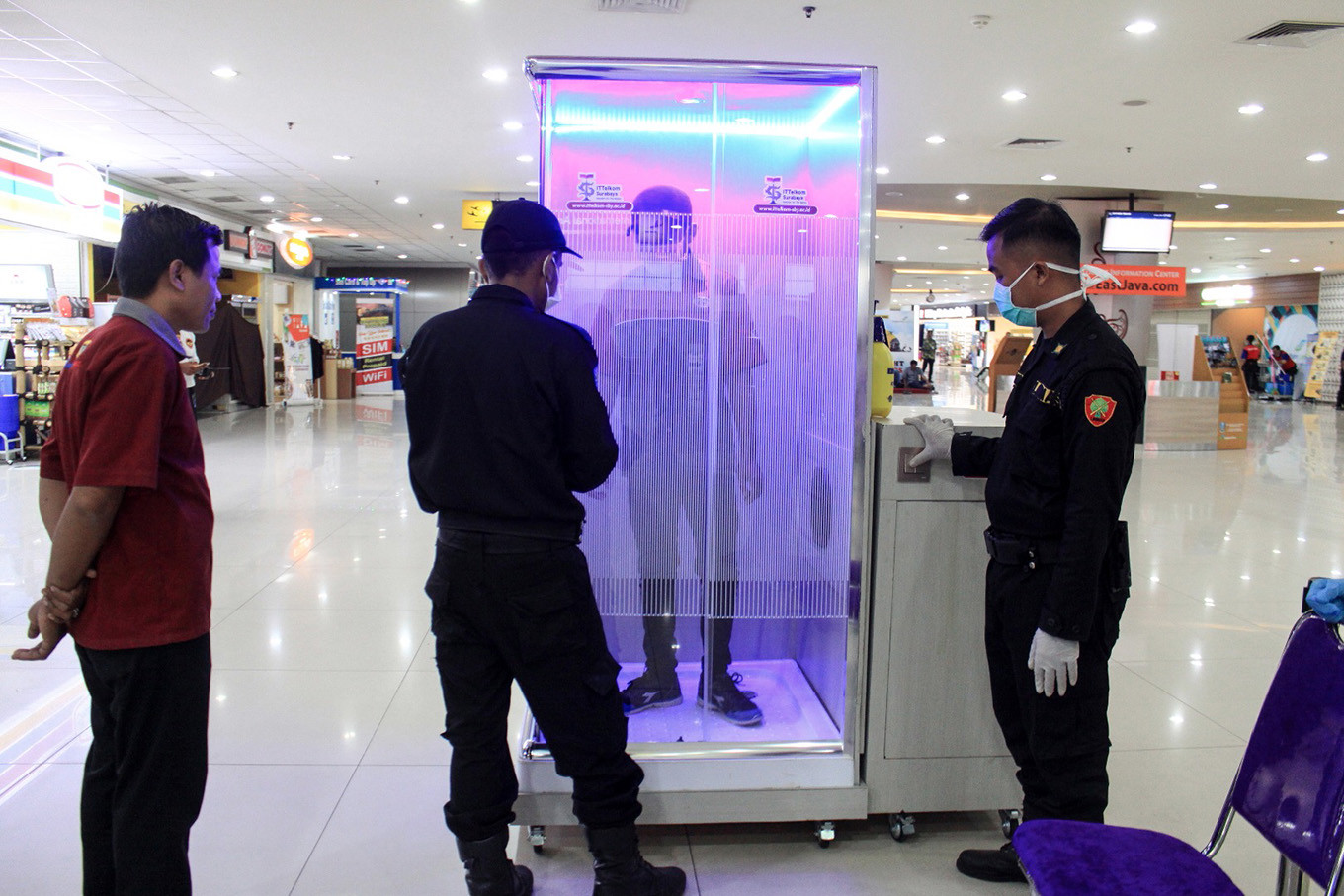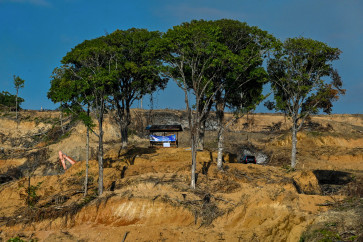Popular Reads
Top Results
Can't find what you're looking for?
View all search resultsPopular Reads
Top Results
Can't find what you're looking for?
View all search resultsIndonesia to bar foreigners from entering in bid to curb imported cases
Indonesia will bar foreign nationals from transiting through or entering the country as the government steps up efforts to curb the spread of COVID-19 in the country without heeding growing calls for a complete lockdown.
Change text size
Gift Premium Articles
to Anyone
I
ndonesia will bar foreign nationals from transiting through or entering the country, officials announced on Tuesday, as the government steps up efforts to curb the spread of COVID-19 in the country without heeding growing calls for a complete lockdown to contain the pandemic.
President Joko “Jokowi” Widodo announced the travel ban, effective soon, during a limited Cabinet meeting to discuss the possible repatriation of Indonesians from overseas and limiting the movement of foreigners into the country.
“The President has decided that the current policies needed to be strengthened […], and so it was decided that all visits and transiting by foreign citizens to Indonesia will be temporarily stopped,” Foreign Minister Retno Marsudi told reporters after the Cabinet meeting in Jakarta, a recording of which was circulated to journalists practicing physical distancing measures.
Foreigners who hold temporary or permanent stay permits (KITAS or KITAP), as well as diplomats and other official visitors and/or residents would be exempted from the ban, so long as they strictly follow the applicable health protocols required to enter the country.
“Details will be presented at a separate occasion and will be regulated in a forthcoming Law and Human Rights Ministry regulation,” she said.
The curbs on foreign visitors is the latest in a series of measures taken by the government to contain a virus that has infected more than 1,500 people and killed 136.
The Foreign Ministry previously banned flights to and from mainland China and some of the hardest-hit regions in Italy, South Korea and Iran, before expanding restrictions earlier this month to the Vatican, Spain, Germany, Switzerland and the United Kingdom.
But the president ordered even stricter rules on Tuesday. “Almost all countries have imposed some sort of restrictions on the movement of people in all its variations, adapting it to the conditions of each country, so there is no one-size-fits-all policy,” minister Retno said.
During the Cabinet meeting, Jokowi pointed out that the epicenter of the disease had shifted from China to the United States and Europe, forcing countries that have prepared early to “flatten the curve” to face what he called a new wave in the COVID-19 pandemic.
He also ordered officials to step up the screening of Indonesian workers returning from overseas.
“China, South Korea and Singapore currently face a multitude of imported cases brought back from abroad. So our priority now is not only to control the spread within the country [...] but also to control the mobility of people who might bring imported cases from countries at risk,” the President said, according to a transcript of the meeting.
“Flattening the curve” refers to collective measures aimed at preventing too steep an increase in the overall case number, so as to prevent an already overtasked healthcare system from becoming overwhelmed at any one time with too large a number of COVID-19 patients.
China announced it was sealing its borders to foreigners after 600 “imported” infections were recorded, Bloomberg reports, although 90 percent of these cases are from Chinese nationals returning from abroad, according to data from the Chinese foreign ministry.
Indonesia itself has also been accused of “exporting” COVID-19 cases, mostly from previously unidentified carriers of the disease going abroad, although the Jokowi administration has been quick to paper over any fraying tensions with neighboring countries.
The government is struggling to curb the movement of people from Jakarta to other parts of the country, despite calls to put the capital – currently the national epicenter of the outbreak – under lockdown.
The latest curbs have led observers to believe that Indonesia was heading in that direction, although some others see it as anything but a lockdown — a term that does not exist in the Indonesian legal system.
International relations expert Teuku Rezasyah from Padjadjaran University said that the travel ban cannot be considered a lockdown, arguing that it was an extension of previous physical distancing measures.
“With a lockdown, as it were, the government must guarantee all of the people’s basic needs, even those unaccounted for in the current state budget. And for that to happen there must be a legal basis,” Rezasyah told The Jakarta Post on Tuesday.
The university lecturer said, however, that Indonesia was unique in that it had a large and diverse population to look after, and that the government needed to act fast to mitigate the health crisis.
“Right now, everyone is waiting, and in a time of crisis, waiting is a very dangerous game,” he said.










